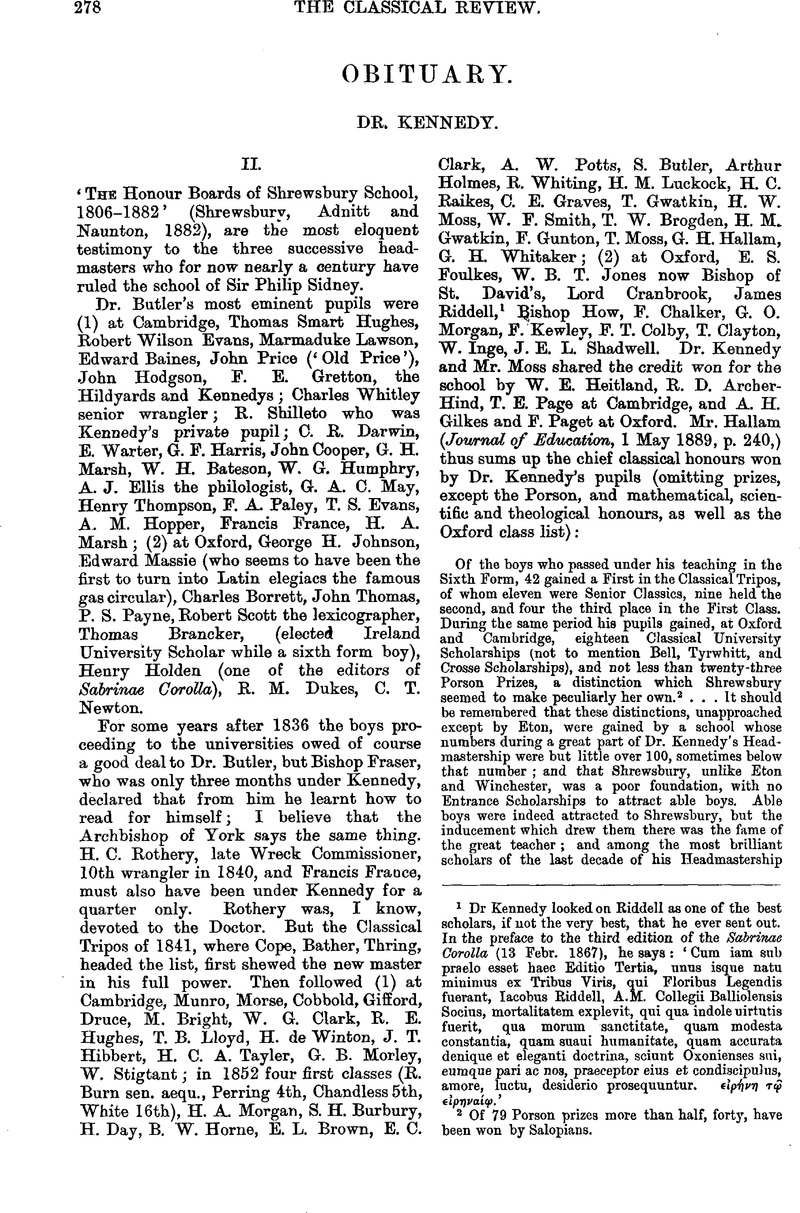No CrossRef data available.

page 279 note 1 Dr Kennedy looked on Riddell as one of the best scholars, if not the very best, that he ever sent out. In the preface to the third edition of the Sabrinae Corolla (13 Febr. 1867), he says: ‘Cum iam sub praelo esset haec Editio Tertia, unus isque natu minimus ex Tribus Viris, qui Floribus Legendis fuerant, Iacobus Riddell, A.M. Collegii Balliolensis Soeius, mortalitatem explevit, qui qua indole uirtutis fuerit, qua morum sanctitate, quam modesta constantia, quam suaui humanitate, quam accurata denique et eleganti doctrina, sciunt Oxonienses sni, eumque pari ac nos, praeceptor eius et condiseipulus, amore, luctu, desiderio prosequuntur. ![]() ’
’
page 278 note 2 Of 79 Porson prizes more than half, forty, have been won by Salopians.
page 279 note 1 The same edition concludes with ‘Desiderium Samuelis Episcopi Iachfieldiensis,’ an elegiac poem by Geo. A. Alston of Wadham college, B. A. 1844. On p. 328 is an engraved portrait of Bp. Butler by W. G. Mason after E. Clothier and T. Phillips.
page 278 note 2 Dr. Butler was appointed in 1798, and held the post for 38 years.
page 278 note 3 I can bear witness to this, from the very little that I saw of Cope. When he heard that Dr. Kennedy was pleased with the dedication of Munro's Lucretius he said: ‘I wish I had known that he would care for such a thing.’ More than once I heard him say that Dr. Kennedy was the best speaker that he had ever, heard. J. E. B. M.
page 280 note 1 In a life of Dr. Kennedy his own evidence and returns, and portions of the evidence of Mr. Graves, should be printed from this report, and also some of the testimony of the Commissioners, who after remarks on the success of Shrewsbury men in University competitions, add (vol. I p. 314): ‘The extent to which this small school contributes to the teaching power of the Universities is not a little remarkable.’
page 280 note 2 This gives only 20 verses and a fraction as the average length of these compositions. In my time so little would not have been accepted; 30 was perhaps the average of the higher boys. I once sent close on a hundred, and very often 50 to 60.